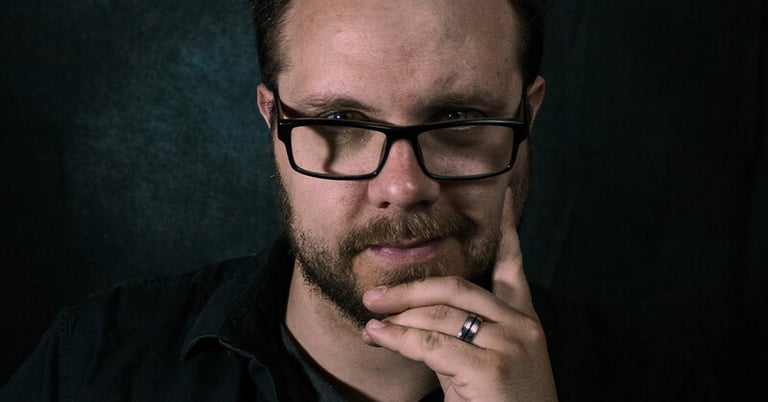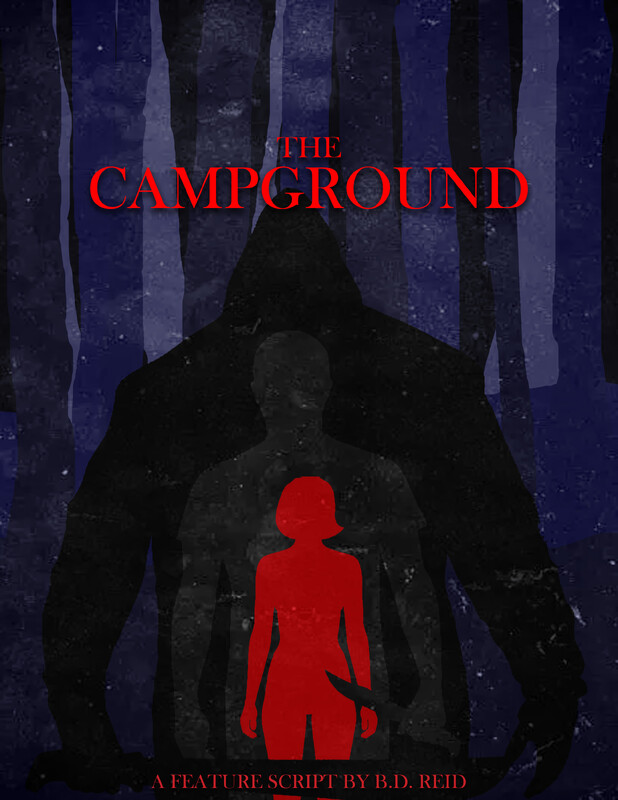The Campground
Written By : B.D. Reid
B.D. Reid’s The Campground is a hauntingly well-crafted screenplay that takes the slasher-horror subgenre and infuses it with deep emotional resonance, supernatural mystery, and psychological weight. At its center is Claire, a woman burdened by the crushing guilt of her past, who embarks on a desperate journey to locate her missing sister. But the search leads her to a cursed campground, a place whose sinister reputation is only a hint of the horrors that lie within.
From the very first page, Reid demonstrates an exceptional control of tone and pacing. The opening sequences don’t rush to shock or gore; instead, they patiently pull the reader into a world where shadows linger just a bit too long, the forest feels like it’s breathing, and the air itself is heavy with something unspoken. The campground is more than a backdrop, it is a living, malevolent presence, a character in its own right. Reid paints it in unsettling detail: rotting cabins, wind that carries whispers, trails that seem to shift underfoot. The descriptions are immersive, creating a sense of place so vivid you can almost smell the damp earth and hear the crunch of leaves underfoot.
Claire is a standout protagonist - complex, flawed, and compelling. Her guilt is not merely hinted at; it seeps into every action, decision, and hesitation. This emotional undercurrent gives The Campground its heart, making it more than just a survival story. Reid allows us to see Claire’s strength and fragility side by side, creating a character that audiences will root for even as they fear what she might uncover.
The tension in the screenplay is multilayered. There is the visceral, human threat in the form of a relentless slasher, a figure whose menace comes not only from brutality but from an unnerving unpredictability. But Reid goes further, weaving in a supernatural force that feels ancient and deeply tied to the land. This duality of threats keeps the narrative unpredictable; the reader never knows whether the next danger will be the knife of a human hand or something far older and far more sinister.


Reid’s pacing is masterful. The script alternates between moments of quiet dread - where the weight of the silence itself feels dangerous and bursts of violence or revelation that hit with full force. These shifts keep the reader engaged, preventing the story from falling into predictable rhythms. The action sequences are cinematic without sacrificing clarity, and the dialogue feels organic, avoiding the trap of forced exposition.
A major strength of The Campground lies in its thematic depth. Beneath the scares, Reid explores the corrosive nature of guilt, the limits of human endurance, and the unsettling question of whether some places are inherently evil or if they are simply mirrors for the darkness already inside us. As the story progresses, the line between Claire’s internal demons and the campground’s external horrors becomes blurred, leading to an ending that is both satisfying and lingering in its ambiguity.


Structurally, the screenplay is tight and visually rich. Every scene pushes the narrative forward, every piece of dialogue reveals character or deepens the mystery. The imagery is cinematic yet grounded, making it easy to envision how powerfully this could translate to the screen. Reid has an instinct for when to reveal, when to withhold, and when to let the audience’s imagination do the work, a hallmark of effective horror writing.
The Campground is not just another horror screenplay, it’s a tense, atmospheric, and emotionally charged journey into the heart of fear, both real and supernatural. Reid delivers a story that keeps its audience guessing while ensuring they are emotionally invested in the outcome.
To get the most out of the feeling, you must definitely read it
Rating: ★★★★☆ (4.8/5)
